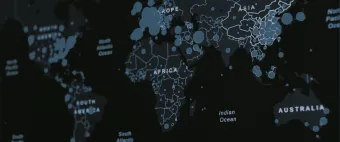Delay, Detect, Defend: Preparing for a Future in which Thousands Can Release New Pandemics

Delay, Detect, Defend: Preparing for a Future in which Thousands Can Release New Pandemics
The world is demonstrably vulnerable to the introduction of a single pandemic virus with a comparatively low case fatality rate. The deliberate and simultaneous release of many pandemic viruses across travel hubs could threaten the stability of civilisation. Current trends suggest that within a decade, tens of thousands of skilled individuals will be able to access the information required for them to single-handedly cause new pandemics. Safeguarding civilisation from the catastrophic misuse of biotechnology requires delaying the development and misuse of pandemic-class agents while building systems capable of reliably detecting threats and preventing nearly all infections.
Kevin M. Esvelt is a Polymath Fellow within the Global Fellowship Initiative of the GCSP. He is an Associate Professor at the Massachusetts Institute of Technology Media Lab and a co-founder of SecureBio Inc and the SecureDNA Foundation. The creator of synthetic ecosystems to rapidly evolve molecular tools, he is best known for inventing CRISPR-based gene drive, a technology capable of spreading engineered changes from laboratory organisms to entire wild populations. Esvelt’s laboratory and affiliated nonprofit organisations seek to safeguard biotechnology against mistrust and misuse by pioneering new ways of working with communities to apply ecological engineering techniques, developing early-warning systems to reliably detect catastrophic biological threats, and applying cryptographic methods to enable secure and universal DNA synthesis screening. He holds a PhD in Biochemistry from Harvard University.
Disclaimer: The views, information and opinions expressed in this publication are the author’s/authors’ own and do not necessarily reflect those of the GCSP or the members of its Foundation Council. The GCSP is not responsible for the accuracy of the information.
